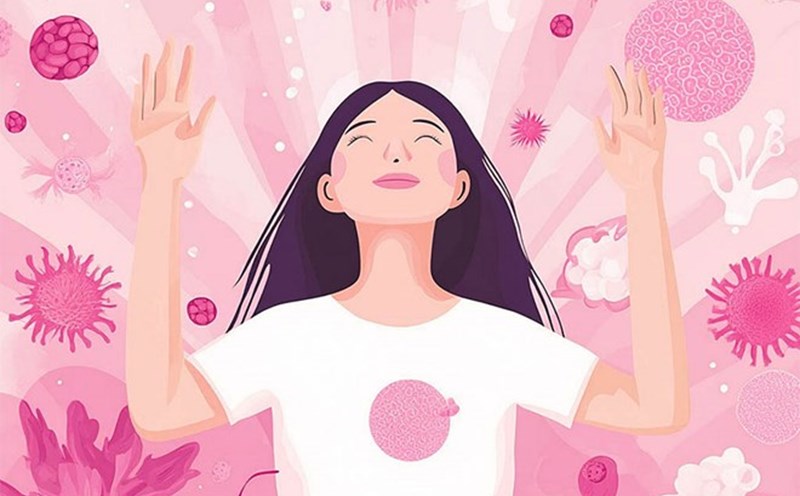Menopause is a natural physiological stage in a woman's life, usually occurring between the ages of 45 and 55, marking the end of the menstrual cycle. In addition to common symptoms such as hot flashes, mood swings, vaginal dryness and sleep disorders, many women also face serious migraines, a neurological disorder that can severely affect their quality of life.
Why does migraine get worse during menopause?
Dr Archana Dhawan Bajaj, gynecologist and IVF expert at Nurture IVF Clinic (New Delhi, India), said that migraines and menopause are closely linked. During premenopause, when the menstrual cycle becomes irregular, estrogen levels fluctuate strongly, which can make migraines worse and last longer.
According to Dr. Archana Dhawan Bajaj, migraines often appear right before or during menstruation, when estrogen and progesterone levels drop to the lowest level. This is especially common in women who have had headaches related to their menstrual cycle.
Symptoms of a knowing migraine
Severe pain in one side of the head, a sharp or seizure.
Nausea or vomiting in pain.
sensitivity to light and noise, just a strong light or noise can make you more uncomfortable.
limited vision, lightning or pitted vision before pain begins.
The pain lasts from a few hours to 2 - 3 days if not treated.
How to treat and control migraines during menopause
Medical intervention and supportive therapy
Apply a ice pack or towel to your forehead/ devolution to relieve pain. Wrap a towel around the ice pack to avoid damaging the skin.
Relax your mind: Practicing yoga, meditation or deep breathing can help reduce stress a factor that can easily cause pain.
Acupuncture: Many people feel less headaches and less recurrence after acupuncture treatment.
Lifestyle changes
Eat healthy: Avoid chocolate, red wine and caffeine, foods that easily cause headaches.
Exercise regularly: Helps blood circulation, reduces stress and improves overall health.
Get enough and on time: Maintaining a scientific sleep routine helps stabilize hormones and prevent pain.
Reduce stress: Relax with music, meditation, or writing a diary every day.
Monitor pain causers: Record the time, type of food, or situation of pain to avoid recurrence.











